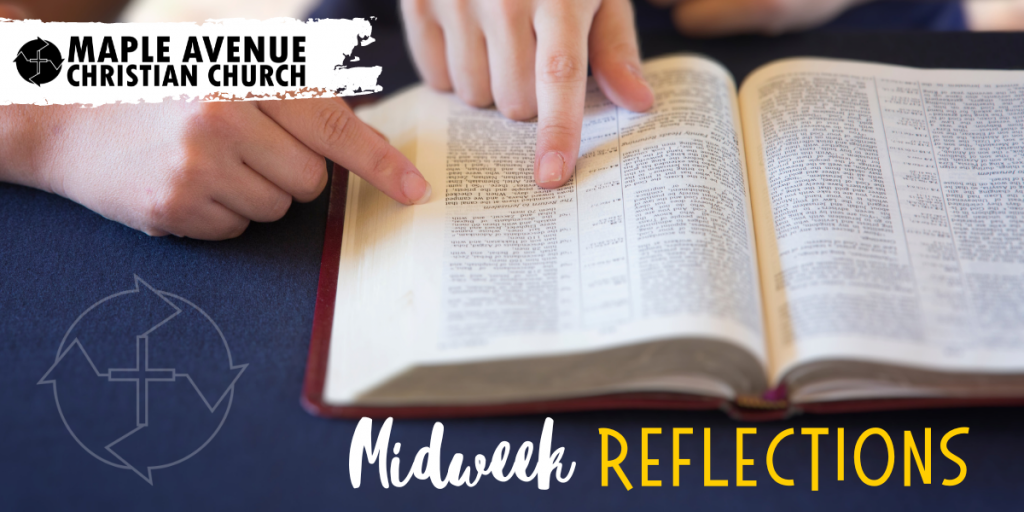
Each week, let’s reflect upon Sunday’s teaching through further exploration…
“Grace That Runs” (The Search Party Sermon Series)
A podcast I tune into each week features Josh Howard, founder of the Ignite ministry and Director of Vision and Mobilization at Discipleship.org. During a recent podcast, Josh and his co-host Jason Ishmael were discussing the possibility of revival in our nation. Josh briefly recapped the pattern of revival in American history. There was the First Great Awakening of the mid-18th century (with leaders like Jonathan Edwards and George Whitefield), the Second Great Awakening from the 1790s-1840s (think Charles Finney, Barton Stone, James McGready, etc.), the Third Great Awakening in the late 1800s-early 1900s (key figures like Dwight L. Moody), and the Billy Graham Crusades and Jesus Revolution in the late 1960s-early 70s. If you look closely at those dates, you’ll notice there was a span of roughly 50 years between each national revival. Isn’t it interesting that 50s years from the most recent one puts us at… today.
I’ve heard so many people talk about revival the past few years, and there are incredible stories about pockets of revival, specifically on college campuses (i.e. – Asbury University in 2023). Many prayers for revival have gone before the Lord, including my own. But are we truly ready for revival?
Revival comes on the heels of repentance – realizing how far we’ve ventured from the Lord in pursuing selfish gain, recognizing how desperately we need the Father, and humbling ourselves as we come home to Him.
Think back to the parable of the prodigal son that Jonathan has been unpacking the last few weeks. We’ve talked of the youngest son going off to the far country, lavishly wasting the generous inheritance given to him by his father, and finding himself in the pig pen – unclean, starving, destitute. In verse 17 of Luke 15, the son comes to his senses. He realizes his sin and makes the long trek home to his father. We find the father seeing the son while he’s still a long way off, looking at him with eyes of compassion, and then running to his son, throwing his arms around him, and kissing him (verse 20). And that’s not all! The father dresses his son in “the best robe,” places a ring on his finger, and puts sandals on his feet (verse 22). Then, he hosts a celebration because “this son of mine was dead and is alive again” (verse 24).
On the heels of this son’s repentance came mercy, grace, restoration, and celebration. If the Pharisees and teachers of the law had taken Jesus’s parable to heart, imagine the revival that would have ensued!
It’s too late for those Pharisees and Jewish leaders, but it’s not too late for us. We could see revival in this present time. We could witness an outpouring of the Spirit from coast to coast, a movement of God so powerful words couldn’t describe it. Wouldn’t that be incredible?! But, again, are we ready for it?
- Do we have the mindset of Christ – humble, obedient servant to the Father? (Philippians 2:5-8)
- Do we live daily with a deep hunger for God’s righteousness? (Matthew 5:6)
- Do we take seriously Jesus’s command to “go and make disciples of all nations, baptizing them in the name of the Father and of the Son and of the Holy Spirit, and teaching them to obey everything I have commanded you” (Matthew 28:19-20)?
I’d love to experience revival in our nation during my lifetime, but not because it would be such a spiritual and emotional high to witness (cue the dopamine!). I long for revival because it would mean we’re trading apathy for devotion, laziness for commitment, and self-satisfaction for reverent obedience.
Softly and tenderly Jesus is calling, calling for you and for me;
See, on the portals He’s waiting and watching, watching for you and for me.
Come home, come home; you who are weary come home;
Earnestly, tenderly, Jesus is calling, calling, O sinner, come home!
(excerpt from the hymn “Softly and Tenderly” by Will L. Thompson)
